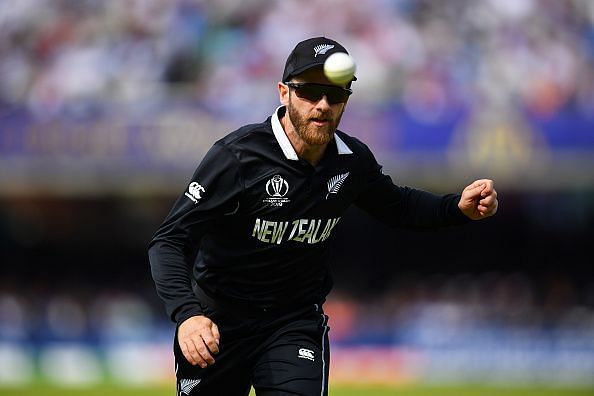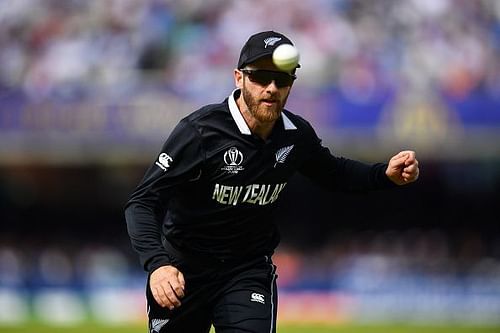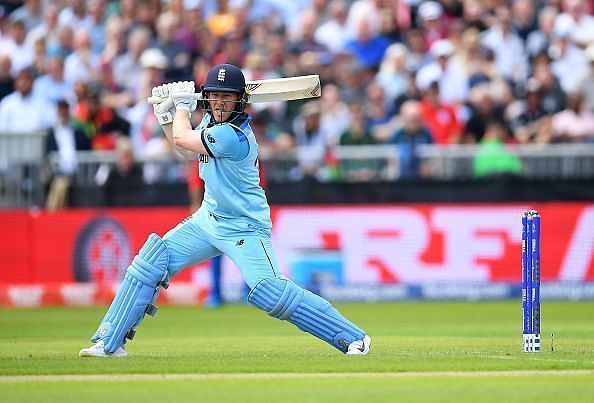
World Cup 2019 Final: A tragedy of errors

Here’s the rub: New Zealand lost the World Cup on a technicality that is as absurd as it is cruel. It came down to the number of boundaries the two teams hit, and England (with 26) pipped New Zealand (with 17) to the winners’ podium.
Yet, if a match, never mind a World Cup final, may be decided after a tie-within-a-tie based on the number of sixes and fours hit, one wonders why it cannot be decided based on the wickets lost by two teams to get the same number of runs?
After all, if the Duckworth & Lewis method had been applied after the 50th over of the English innings, it would have found England needing a few more runs, because they had shipped two more wickets than New Zealand in the course of their run chase.
Rules and errors
No, but this is sport at the highest level and – as an (apparently) inhumanly/'superhumanly' (pick the adjective of your choice) calm Williamson reminded us in the aftermath of a traumatic loss – rules are rules, however preposterous, and both teams knew about them from the off.
From anyone but Williamson, it would have sounded like thinly-veiled sarcasm, but the New Zealand captain’s statements are as dignified as the back foot cover drives he churns out on the slowest of pitches. Such dignity in the face of a harrowing defeat makes the snatching of the World Cup from New Zealand’s grasp even more tragic.
… and snatched – strong as the word might be – it was, for just minutes before the 50-over contest was tied, two umpires decided to give England six runs, instead of the five they should have got, on overthrows.
No less an umpiring authority than Simon Taufel has indicated that the umpires got it wrong. True, even the best umpires are human, and like everyone else, are apt to make mistakes in the heat of the moment, but to think they got it wrong after conferring for a substantial length of time magnifies their error.
What is more bewildering is that the umpires' decision was accepted as a fait accompli, in the admittedly fine traditions of the gentleman's game cricket once was, and few people seem to have suspected a mistake until even the Super Over was completed -- until, that is, England's euphoria and New Zealand's heartbreak were complete.
The anatomy of an outcome
As Williamson and Taufel have both conceded, however, one in a spirit of unparalleled sporting generosity and the other in a loyal defence of umpires, the end result cannot be imputed solely to the one extra run that the umpires wrongly gave England.
What if Tom Latham had not ducked under bouncers when New Zealand were batting? What if Mitchell Santner had run a bye off the last ball of the New Zealand innings? What if all of New Zealand's batsmen had been a little more enterprising with the bat?
What if the umpire’s call received by Jason Roy on zero had been 'out' (and what if the umpire's call received by Ross Taylor on 15 had been 'not-out')? What if Colin de Grandhomme had held onto a regulation caught-and-bowled chance offered up by Jonny Bairstow?
If those ‘what ifs’ are allowed, and they seem to be, so should the ‘what if the umpires had given England five runs instead of six?’ – seeing as it focuses on the sharp end of an endgame that left spectators without fingernails and the contest without margins.
The larger point here is that without the extra run New Zealand would have won by a run and there would have been no Super Over; and without the Super Over, which also ended in a tie, application of the boundary count rule in deciding the winner – improbable in any case, let alone in a World Cup final, so some accidental slack for the ICC – would have been averted.
The insightful reader may point out all this is the quibble of hindsight. Indeed, but even if hindsight can be brushed aside, its teachings should be recorded so that history does not appear again dressed in the garbs of the same follies.
A review of the result? Not a chance...
I am nearly certain that there is no provision, or precedent, in cricket to revisit the result of a concluded game. It could be argued that now is a better time than any to fill the gap and that New Zealand and England may be allowed to share the World Cup trophy.
After all, neither team deserved to lose on July 14, and the tie in the Super Over knockout following the tie in the 50-over bout showed just that.
More to the point, if the World Cup final in question had been played a few years ago, before franchise-based cricket threw into sharp relief the obsessively competitive need for a winner and a loser, it would have ended in a tie— a uniquely beautiful result in the raging maelstrom of contemporary sport, and a climactic advert for the thrills that cricket offers.
It is unrealistic though to expect cricket’s governing body to consider even a review of the result.

So, as things stand, the World Cup is England’s alone to hold aloft, and few who have watched England’s (now officially) greatest ODI team between the nadir of 2015 and the zenith of 2019 would begrudge them the honor.
That England won based on boundary count might even be seen as a dramatic vindication of the ‘play freely’ mantra that Morgan has goaded his band of men to follow, since England, playing a safety-first brand of limited-overs cricket, failed to qualify for the World Cup quarterfinals in 2015.
One hopes, however, that by the time that next big tournament rolls into cricket town, the ICC will have learned some lessons from Sunday evening, and revisited the rules that decide on the winner of a tied cricket match. A team of broken but unbowed gentlemen from New Zealand deserve that much at the very least.
Also read - World cup all-time records
Follow Sportskeeda for all the updates on World cup most runs, news, live scores, world cup most wickets, schedule, most runs, and fantasy tips.